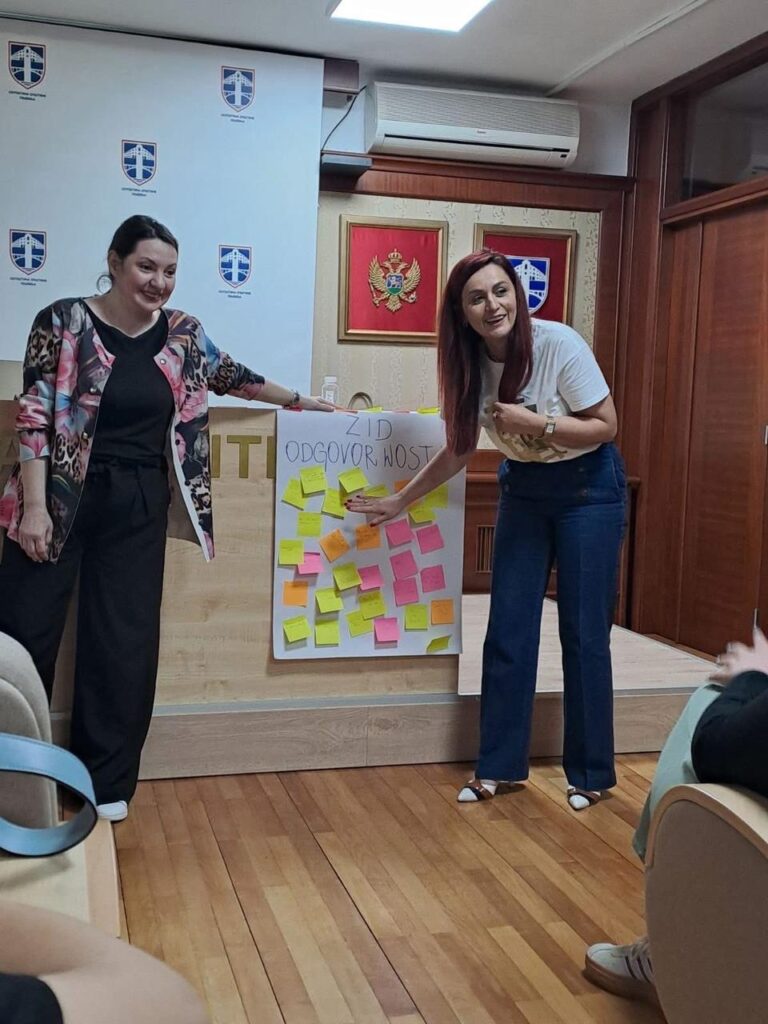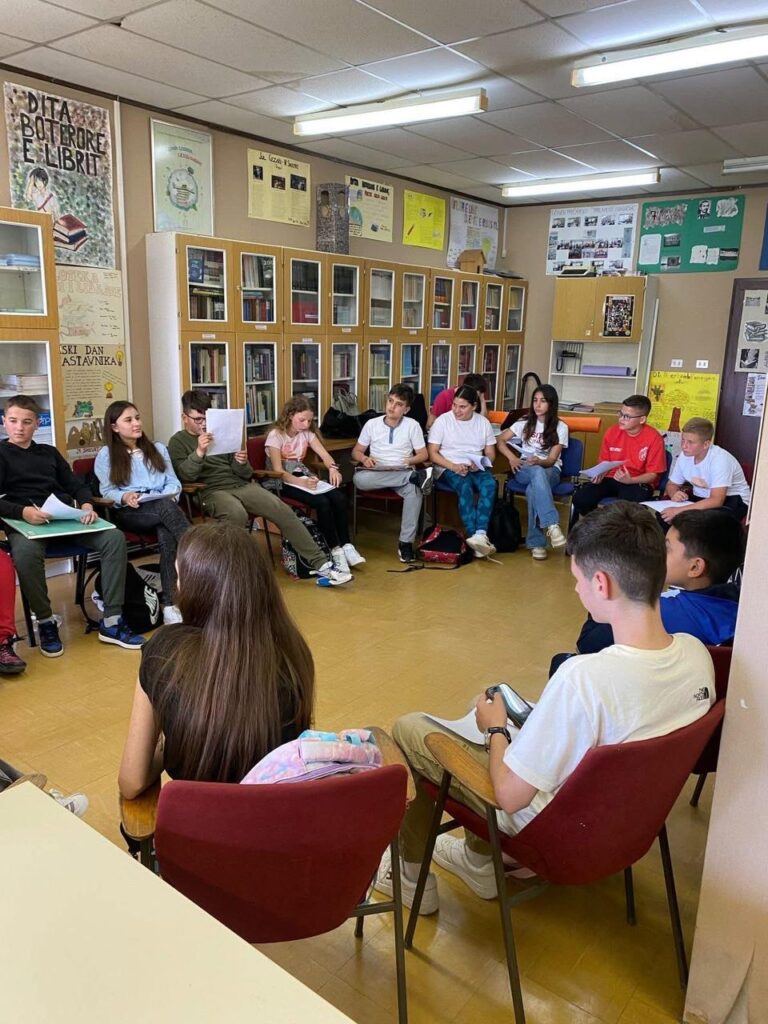Centre for Civic Education (CCE), Human Rights Action (HRA), and the Centre for Women’s and Peace Education – ANIMA successfully conducted six workshops on civic education and human rights over the past month for elementary and high school students in Bijelo Polje, Cetinje, Ulcinj, Podgorica, Bar and Pljevlja.
During these inspiring workshops, young participants had the opportunity to learn through interactive activities, dialogue, and simulations about the importance of equality, responsibility, respect for diversity and activism.
The students showed exceptional dedication and interest in these topics, while also reflecting on ideas to improve their schools and communities in these areas. Notably, the turnout exceeded expectations, with 154 students completing the programme. This clearly indicates a need for greater emphasis on civic education and human rights in the education system.
CCE, HRA and ANIMA have long advocated for civic education to once again become a mandatory subjectthrough which primary and secondary school students would acquire essential knowledge about freedom, the rule of law and justice, equality, solidarity, and respect for diversity.
Mladen Živković, a sociology teacher who worked with some of the students, emphasized the importance of understanding the concept of conflict and peaceful conflict resolution in democratic societies.
“We pointed out that a democratic society is not one without conflict. However, in such societies, which may even encourage conflict, there are institutional rules in place. Thus, democratic societies can be understood as arenas of competition for achieving political or economic goals and means, all within the framework of inalienable human rights and their institutional protection, mechanisms of civic struggle, and strong civil society organizations focused on specific groups or goals”, he explained.
“I am convinced that our students need a subject whose core outcome is a conscious, capable, and intelligent citizen—not just a worker or an employer on the labor market. But we, as teachers, also need more knowledge, better methodological tools, and spaces different from the typical classroom. Civic education, as a teaching process, should reflect the characteristics of a democratic process”, Živković concluded.
The workshops were organized within the project “Enhancing Civic and Human Rights Education: Educational Reforms for a Stronger Democracy” implemented by CCE in cooperation with HRA and ANIMA, as part of the programme “Building Citizens’ Trust in Institutions and Strengthening Resilient Communities”, carried out by UNDP, UNICEF, and UNESCO, in collaboration with the Government of Montenegro. The project is funded by the UN Peacebuilding Fund.
Sara Čabarkapa, Active Citizenship Programme Coordinator


